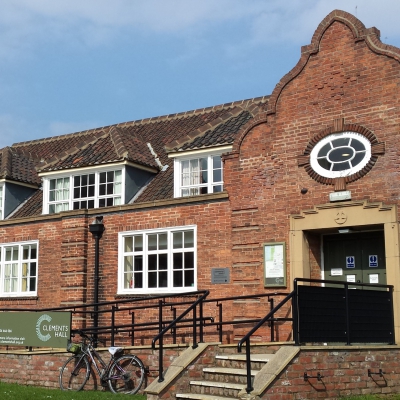
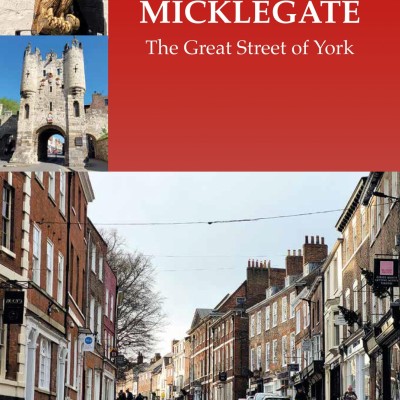


View navigation
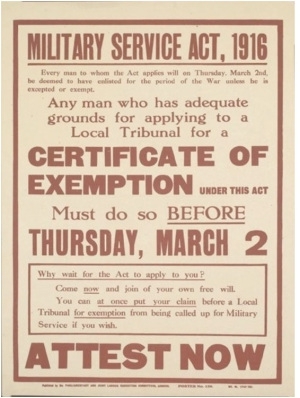 Throughout continental Europe from the 18th century onwards, conscription to military service was normal everywhere but Britain, which had traditionally held out against compulsory service.
Throughout continental Europe from the 18th century onwards, conscription to military service was normal everywhere but Britain, which had traditionally held out against compulsory service.Harold Deighton lived at 12 Fenwick St, York, and was a member of a newly formed organisation which had a York branch, the No-Conscription Fellowship. Records show that he was a committed Christian, and in 1916 he claimed exemption from any war service at all on the grounds of conscience. He was granted exemption, but from combat service only. This meant that he had to serve the war effort, but was exempted from combat. As he wanted no part in the war at all, he refused to be conscripted and as a result, was arrested.
He consistently refused to obey any orders that were given to him as a soldier, as he refused to be a soldier. For example, when asked to put army boots on, he refused – when boots were forced onto his feet, he kicked them off. Harold’s father was a confectionery worker. Next door, at no 10, Walter Charles Ogram was also a confectionery worker. Given their proximity to the Terry’s factory in Clementhorpe it is not inconceivable that the two men worked together. Two of the Ogram sons, Harold and Arthur, had joined up at the outbreak of war – they had both been Territorials, pre-war. A third son, Frank Ogram, would join the army as soon as he was 18. By September 1918, the Yorkshire Herald reported that Arthur Ogram had been killed in action on the Somme, and Harold had been invalided out of the Army. Frank was in training, aged 18, with the West Yorkshire Regiment.
By September 1918, conscientious objector Harold Deighton had been court martialled three times and been imprisoned in Richmond Castle, Durham Gaol, and Wormwood Scrubs. It is impossible for us to imagine what the relationship would have been between the two families at 10 and 12 Fenwick Street.
While many local men were allowed exemption from fighting because they worked in local industries in York which were regarded as vital for the war effort, some like Harold took a brave decision to stand out against the call to arms. They did this for a number of reasons, some religious, some political and some arising from their humanitarian beliefs. York has a strong Quaker community, and there were also several other religious viewpoints that inspired York conscientious objectors – Methodist, Anglican and Catholic. The following chart shows some of the complexities of this issue: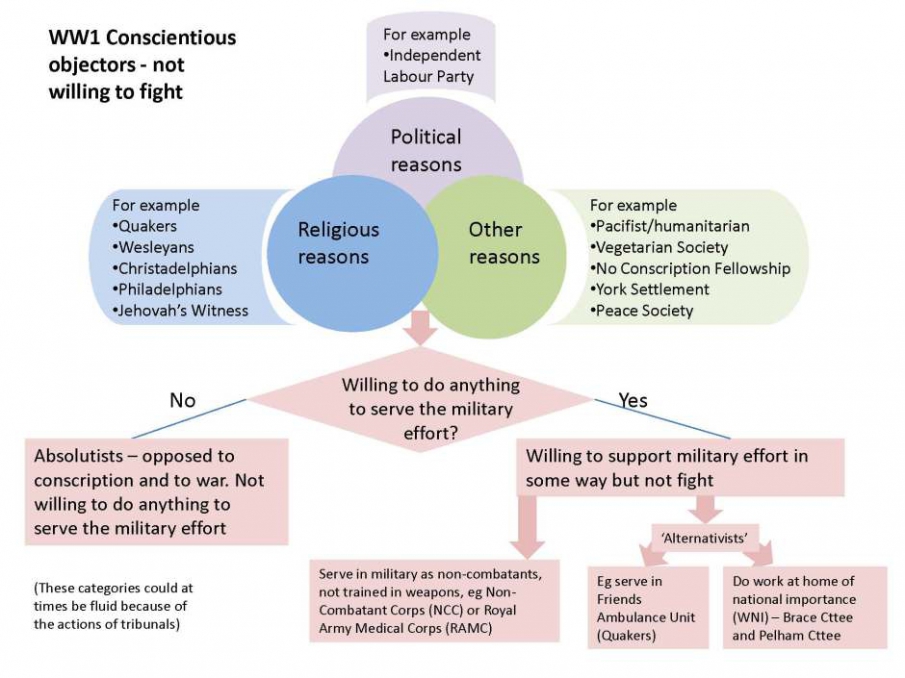
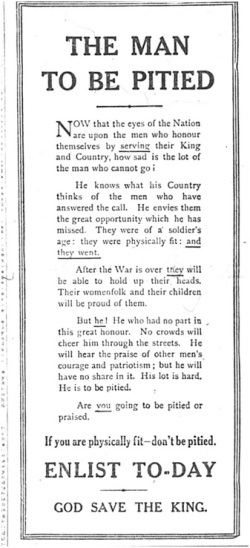 Using the Imperial War Museum Lives of the First World War database, which is based on research by Cyril Pearce, together with other sources, we’ve identified a range of men from our small area who were WW1 conscientious objectors. Some, such as Harold Deighton and Leonard Heaton, were imprisoned at Richmond.
Using the Imperial War Museum Lives of the First World War database, which is based on research by Cyril Pearce, together with other sources, we’ve identified a range of men from our small area who were WW1 conscientious objectors. Some, such as Harold Deighton and Leonard Heaton, were imprisoned at Richmond.
These are the ones we’ve found so far. Even within our own small neighbourhood these personal stories reflect a range of beliefs and experiences, including Quakers, Socialists and Methodists. Some belonged to the local branch of the No-Conscription Fellowship. Their destinies varied too, some were absolutists, some were doing Work of National Importance, some going to prison (at times with hard labour), some serving in the Non-Combatants Corps and some serving in the Royal Army Medical Corps or the Friends Ambulance Unit on the front. What is also interesting is the way that sometimes a group of siblings all became COs, but at times some of their brothers might be willing conscripts.
Follow the links for their personal stories:
Another local man,Dr Charles Coghlan, who was in practice in East Mount Road, claimed exemption because of his humanitarian work in looking after the sick, rather than on grounds of conscience.
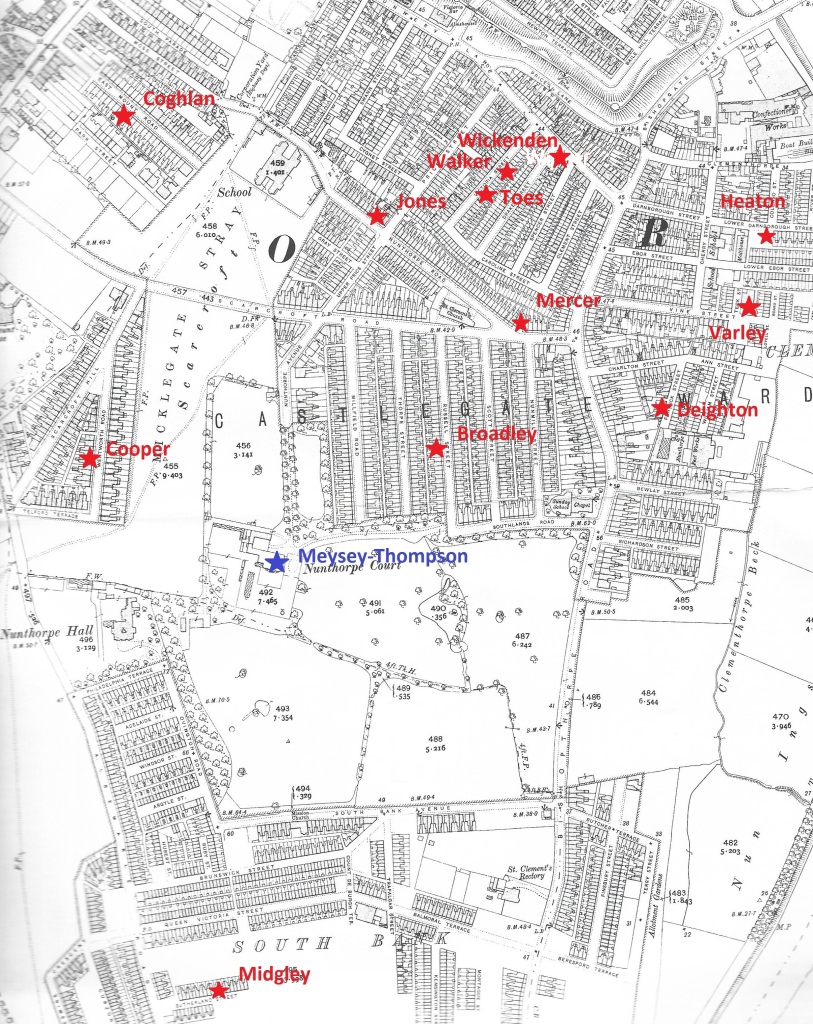
This map shows the location of these men and we have also mapped them using HistoryPin – follow this link.
Other local people also played a part, entering a vociferous debate on this topic. Colonel Meysey-Thompson, from Nunthorpe Court, had particularly outspoken views about conscientious objectors, saying that in his opinion objectors should be dressed in red and ‘distributed along the front, in the firing line…their task to be digging of graves for the heroes who have fallen’. Interestingly he obtained exemption for his cowman, Walter Porter, at one point. Follow this link for a thoughtful article about the Meysey-Thompsons by group member Hudda Morgan.
Our project aims to share resources and skills to research the experience of these men, where evidence is available, using local newspapers and appeal tribunal records. What was the level of support for anti-war opinions? We aim to investigate how our local tribunals responded to these cases, and how far local factors which were distinctive to York affected decisions. There were many forces at work, shaping decisions, as is illustrated in the following chart.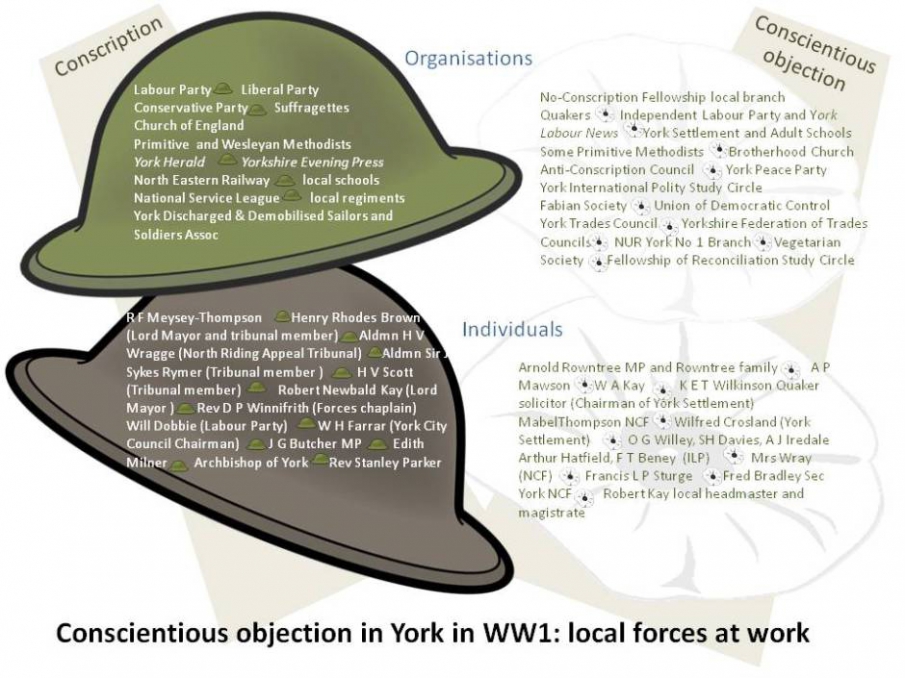
We’re hoping to explore the origins of objectors’ pacifist beliefs, their lifetime experiences and relationships with the local community, the responses of the tribunal decision-makers to their cases, and the impact on their families and subsequent generations.
At our December 2016 workshop in York exploring the impact of WW1 conscription on local communities we focussed on the North Yorkshire Military Appeal Tribunal papers, now being catalogued at Northallerton. See below for some of the presentations from speakers, which you can open if you have Microsoft Powerpoint on your computer. Please note they may take a little while to open:
North Yorkshire Grounds for Appeal Project: Ruth Rising (North Yorkshire County Record Office) with Roz Batchelor (York Quakers archivist) and Karyn Burnham (author) rr-gfa-presentation-5-dec2016
Researching conscientious objector stories; sharing findings; future projects: Clements Hall Local History Group members conscription-workshop-presentation-dec-2016
Military tribunals, with examples of local studies: Julie Moore (University of Hertfordshire, and Everyday Lives at War Engagement Centre) clements-hall-julie-moore
World War 1 collections in Explore York Libraries & Archives: Laura Yeoman, Archivist (Access & Engagement) ly-clements-hall-presentation-5dec16
Cyril Pearce is the compiler of the national database of COs (see https://search.livesofthefirstworldwar.org/search/world-records/conscientious-objectors-register-1914-1918) and author of Comrades in Conscience: The story of an English community’s opposition to the Great War, (Francis Boutle Publishers), 2014. He said: “The Clements Hall Group’s work on its local COs is splendid. They have done exactly what I had hoped people would do with the database – add to it, enrich it with images and make their own sense of what they found. To see this sort of work makes all the years gathering the data seem worthwhile.”
If you can help us with exploring this topic, or have any information about these men and their families, please contact us via Clements Hall on 01904 466086 or email enquiries@clementshall.org.uk.
Bibliography
https://search.livesofthefirstworldwar.org/search/world-records/conscientious-objectors-register-1914-1918
https://www.hlf.org.uk/about-us/news-features/grounds-appeal-secret-stories-first-world-war-conscription
A.J. Peacock, ‘Conscience and Politics in York 1914-18′, York Historian, 5 (1984) 39-50
A.J. Peacock, York in the Great War 1914-1918. (1993)